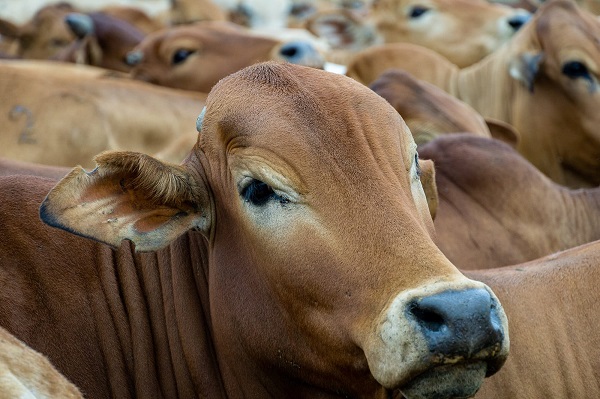
The Federal Government is poised to launch the National Dairy Industry Policy to bolster our nutritional security and foster economic development in the nation.
His Excellency, Vice President Kashim Shettima, revealed this during the World Milk Day 2024 celebration under the theme, “Harnessing the Nutrition and Investment Opportunities in a Sustainable Dairy Value Chain.”
The primary goal of the policy is to revolutionize the dairy sector in Nigeria by tackling critical challenges such as outdated global best practices for cross-breeding and calving, midstream hurdles, low investment, disorganised milk collection schemes, high costs associated with milk collection and cold chain facilities, inadequate transportation infrastructure, unstable electricity supply and pervasiveness.
Shettima, represented by the senior special assistant to the president on agribusiness and productivity enhancement, Dr. Kingsley Uzoma, emphasised that the nutritional and economic benefits of milk and dairy products have been globally acknowledged, underscoring how dairy sustains the livelihoods of one billion people and its crucial role in nourishing the world.
He highlighted that dairy is a readily available, cost-effective, and nutrient-rich food essential for balanced diets worldwide. Billions of individuals consume milk and dairy products daily, not just as essential sources of nutrition but also as a means of sustenance for farmers, processors, vendors and other stakeholders in the dairy value chain.
It is our shared duty to ensure that consumers, industry players, and governments are equipped with the latest information on how milk and dairy products contribute to human nutrition and how the development of the dairy industry can enhance food security and alleviate poverty.
He revealed that Nigeria expends $1.5 billion yearly on importing dairy commodities due to production shortfalls. Despite Nigerians consuming an average of 1.6 billion litres of milk and its derivatives, domestic production falls short of meeting this demand.
Expounding further, he mentioned that President Bola Tinubu’s administration is resolute in attaining national production security, with the ultimate aim of exporting dairy goods to other African nations under the African Continental Free Trade Agreement (AfCFTA).
Shettima asserted that, in Nigeria, dairy farming presents significant opportunities for economic progress and youth employment.
Consequently, he emphasised that livestock farmers encounter challenges like inadequate animal feed, conflicts over grazing lands and the adverse impacts of climate change that can disrupt productions.
He noted, “These challenges are exacerbated by violent clashes between farmers and cattle herders over land use, further complicated by escalating droughts and the urgent need for sustainable solutions. Food insecurity in Nigeria, especially among children, is alarmingly high.”
UNICEF reports approximately 25 million undernourished and stunted children in Nigeria, ranking the country first in Africa and second globally in terms of malnutrition prevalence.
The Nigerian dairy industry plays a pivotal role in combatting this issue by supplying essential nutrients like vitamins, protein, magnesium, and calcium vital for proper growth and development from infancy to adulthood.
He unveiled that the demand for animal-sourced foods in Nigeria is pushed by three main factors: population size, income per capita and urbanisation.
“As our population expands, so does the demand for animal products. However, despite this increasing need, our dairy sector encounters significant barriers, including low productivity, inadequate infrastructure, and restricted access to markets. These obstacles underscore the urgent necessity for a holistic strategy to revolutionise the dairy sector.
“The National Dairy Policy aims to serve as a guiding framework for revitalizing the dairy industry in the forthcoming years. Its implementation will ensure enhanced dairy farming practices, heightened investments in dairy processing and preservation, evidence-based policy execution, strengthened collaborations, business facilitation for the dairy industry, promotion of public-private partnerships, adoption of technology and innovation, encouragement of women-friendly and youth-centric business models, advocacy for good animal health practices, and effective monitoring and evaluation of progress,” he articulated.
The potential in Nigeria’s dairy sector is evident through substantial investments from both local and international companies.
The objective is to bolster local milk production, establish a robust dairy market, reduce import reliance, and enhance food and nutritional security.
The Minister of State for Agriculture and Food Security, Sen. Aliyu Abdullahi in his statement, divulged that the Nigerian dairy policy outlines guidelines for the development of the dairy industry in Nigeria, enhancement of livelihoods for dairy farmers and stakeholders along the value chain, augmentation of national revenue from the dairy sector, and curbing the country’s dependency on imported dairy products.
According to Abdullahi, the dairy policy will expedite the creation of enabling and supportive environment, job creation & import reduction, milk production target, milk collection centers, cooperative business structures, massive investments, import reduction, improved nutrition, capacity building and support for livestock farmers, financial empowerment, product development and sustainability.
The policy will bolster Nigeria’s economic growth for long-term sustainability.
During her presentation, the director, department of animal husbandry services at the ministry, Mrs. Winnie Lai-Solarin stressed that Nigeria’s dairy industry possesses the potential to become a cornerstone of the national economy, fostering food security, employment and sustainability.
The Nigerian dairy sector stands as a testimony to resilience and gradual transformation.


